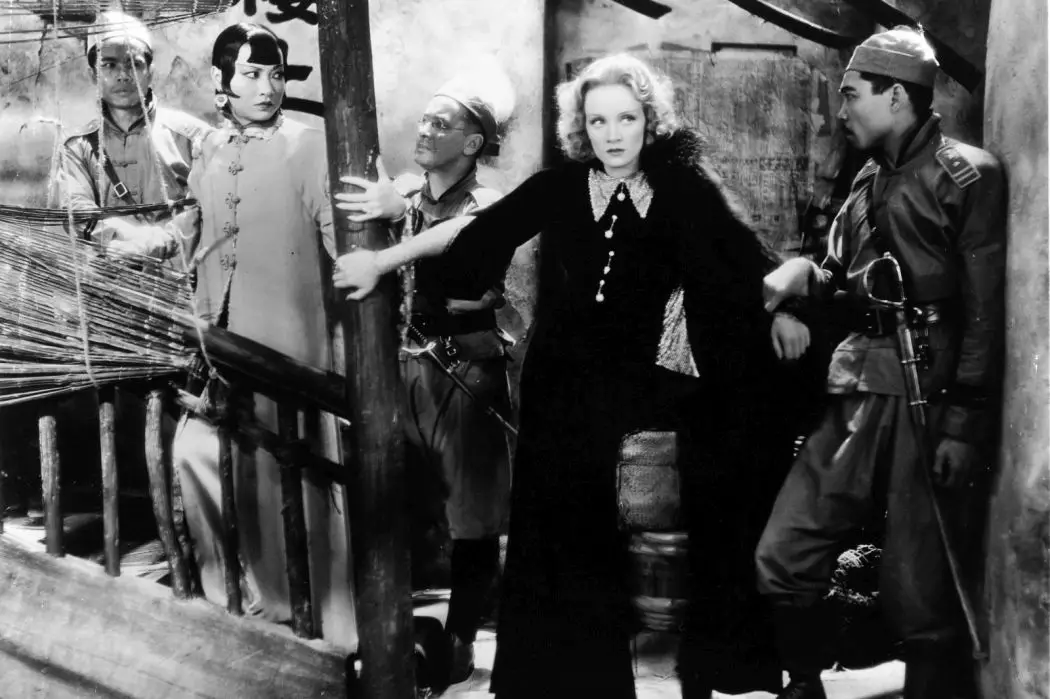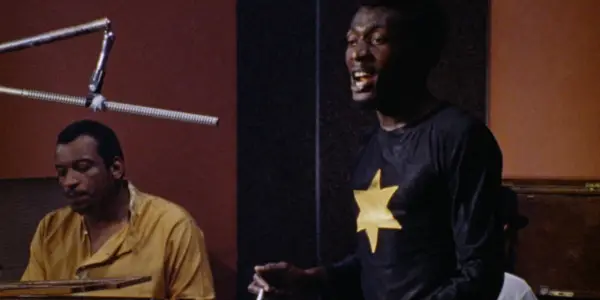Video Dispatches: Dietrich & Von Sternberg, Abel Ferrara’s Debut & THE HARDER THEY COME

Midwesterner, movie lover, cinnamon enthusiast.
Video Dispatches is a regular column covering recent home video releases.
Marlene Dietrich and Josef von Sternberg at Paramount (1930-1935) – Indicator

Now having seen the six films (Morocco, Dishonored, Shanghai Express, Blonde Venus, The Scarlet Empress and The Devil is a Woman) — as well as their first collaboration, the German film The Blue Angel — I feel transformed, as if, regarding film fandom, there is a before the Josef von Sternberg/Marlene Dietrich films and an after, and as soon as I finished them, I wanted to start again from the top.
These six films are a monolith erected for the sake of filmmaking that privileges, above all else, expression, poetry, fantasy and artifice. Although I have a favorite, and I particularly love the first three films, each of the six are indispensable — I can’t imagine the set without the overstuffed glamour of The Scarlet Empress or the realism-adjacent Blonde Venus — filled with Dietrich’s tragic beauty and Von Sternberg’s unrelenting visual bouquets of streamers, balloons, smoke, frost and veils.
Last year, Criterion put out a box of the same six films. It was, and still is, a great release on its own, but it’s hard to overstate just how much more comprehensive and valuable Indicator’s set is, with a bevy of useful extras that I’ve just scratched the surface of, but immediate standouts are Samm Dieghan and Kat Ellinger’s Morocco commentary, a look at Von Sternberg’s paintings and an interview with So Mayer about Dietrich’s queer iconography, which pairs well with Teo Bugbee’s Film Comment essay in last year’s May-June issue.
Aside from Indicator’s box, which is probably the year’s release to beat, I also recommend finding a copy of Andrew Sarris’ film-by-film analysis of Von Sternberg’s career, especially with the additional release of his other works, such as Criterion’s forthcoming HD update of three silent classics and Arrow’s recent release of his entertaining adaptation of Crime and Punishment.
9 Lives of a Wet Pussy (1976) – Vinegar Syndrome

Samm Deighan also contributes a commentary track to Vinegar Syndrome’s new release of 9 Lives of a Wet Pussy, the pseudonymous, hardcore and debut film of Abel Ferrara (here as Jimmy Boy L). While Indicator’s Dietrich box is an overshadowing duplicate, this came seemingly out of nowhere, but is just as necessary.
Ferrara was a hot topic earlier this year due, mostly, to a large Ferrara retrospective hosted by the Lincoln Center. 9 Lives of a Wet Pussy wasn’t included, but it certainly would’ve been welcomed. Although a 70-minute porno — decent chunks of which are dedicated to graphic sex — so much of this film is pure cinema. This is a far cry from the porn work of Joe D’amato, with stunning moments of raw visual energy, like the long tracking shot of a Bentley set only to tweeting birds or the even longer shot of sexual, non-stimulus convulsing of a naked woman set above a textureless but luminous surface.
Deighan’s commentary track is an essential feature here. Again, she’s a seemingly boundless source of knowledge, but even more, she contextualizes the film for viewers within multiple criteria: Abel Ferrara’s filmography, the time period and genre, as well as the canon of auteurs who began as porn directors (Wes Craven, D’amato, etc.).
Get 9 Lives of a Wet Pussy on Blu-Ray
The Harder They Come (1972) – Shout! Factory

Shout’s recent release of Perry Henzell’s The Harder They Come is another that’s destined for my shortlist of best releases of the year. The main feature, lovingly restored, is an energetic cult classic that spent many months on the Midnight Movie circuit. It follows reggae singer Jimmy Cliff as Ivanhoe Martin, a reggae singer himself living in Kingston, trying to cut a record at the local studio.
After he finally gets to record a single, he realizes the harsh realities of the studio hegemony over poor artists, paying him a measly $20 and refusing to give him much air time. But, Ivanhoe’s song becomes a hit regardless once he turns criminal-at-large, getting involved in the ganja trade, where he also realizes he’s destined to be an underpaid pawn. In part, The Harder They Come is a film about commodification of labor, and Ivan’s turn to murder, concurrent with his rise to fame, brings new meaning to Cliff’s hit “You Can Get It If You Really Want” — a song that itself has been commodified by large corporations for advertisements in an attempt to convey consumer confidence. They can have this thing if they really want it. Ivan’s trajectory brings an irony to the song, and pain to the coda, “But you must try and try, try and try, try and try.”
Obviously, the soundtrack is famous, and for a reason, but the entire fabric of Henzell’s film vibrates with an instinctual, homemade style. This is a quality amped up in Henzell’s second, and only other film, No Place Like Home, which Shout! was gracious enough to include on this release.
No Place Like Home, a film he started making after The Harder They Come until funding ran out, was long lost until Henzell stitched together discovered footage into something approximating his vision in 2006, shortly before his death to cancer. It’s a strange movie about a white American producer (a stunning Susan O’Meara in her only role) who’s come to Jamaica for a shampoo commercial and ends up, at least liminally between dream and reality, having an affair with a local man, Carl (Carl Bradshaw), who drives her around the island.
Again, Henzell manages to make essentially a hangout picture that also holds real potential for social commentary. No Place Like Home is interested in the local working class and the changing commercial landscape, as well as what it means for a white American woman to fetishize a place like this and a person like Carl before going back to her high-rise office and rich lawyer husband. Henzell’s own whiteness brings additional layers to both of his films, including questions of problematic perspective.
Surprisingly, I thought No Place Like Home was the richer film of the two, which might not be as surprising if this film was seen enough to have any sort of reputation. Hopefully Shout’s inclusion of it on this fabulous, three-disc set will keep garnering it new eyes.
Get The Harder They Come on Blu-Ray
Does content like this matter to you?
Become a Member and support film journalism. Unlock access to all of Film Inquiry`s great articles. Join a community of like-minded readers who are passionate about cinema - get access to our private members Network, give back to independent filmmakers, and more.












